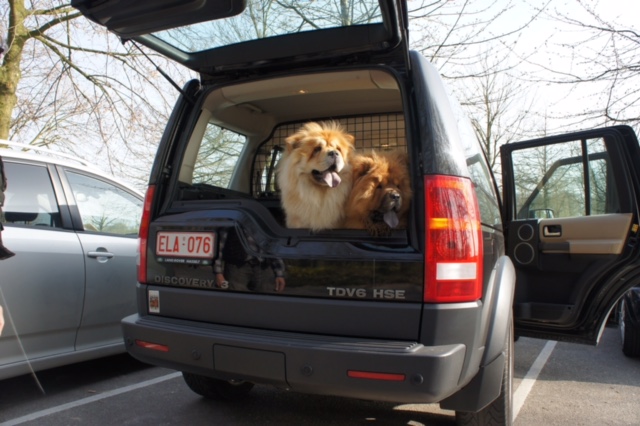Travelling with your dog
Taking your dog along can make the family vacation more fun for everyone, if you plan carefully. Here are some trip tips to make traveling with your dog enjoyable.
Health and Safety
- Health Checks. Bring your dog to the vet’s for a check up before going on an extended trip. Make sure all his vaccinations are up to date; shot records with you. Health certifications are required for airline travel.
- To keep your dog healthy as you travel, bring along a supply of his regular food and some local, or bottled, water. Be sure to bring any medications he needs.
Crates
A crate is an excellent way to keep your dog safe in the car, and is required for airline travel. It can also keep your pet from getting into trouble in a hotel or at your host’s home. Crates are available from most pet supply stores. Look for these features when purchasing:
- Large enough to allow the dog to stand, turn and lie down.
- Strong, with handles and grips, and free of interior protrusions.
- Leak-proof bottom covered with absorbent material.
- Ventilation on opposing sides, with exterior rims or knobs to prevent blocked airflow.
- “Live Animal” label, arrows upright, with owner’s name, address and phone number.
- Stock the crate with a comfortable mat, your dog’s favorite toy, and a water bottle, and your dog is ready to go.
Identification
In the event that your dog gets away from you on your trip, you can increase the chances of recovery by making sure he can be properly identified:
- Make sure your dog has a sturdy leash and collar. The collar should have identification tags with the dog’s name, your name, and your home phone number, as well as proof of rabies shots.
- Consider a permanent form of identification, such as a microchip (see AKC Reunite).
- Bring a recent picture of your dog along with you.
Traveling by Car
- Get your dog used to the car by letting him sit in it with you without leaving the driveway, and then going for short rides.
- Avoid car sickness by letting your dog travel on an empty stomach. However, make sure he has plenty of water at all times.
- Keep the car well-ventilated. If the dog is in a crate, make sure that fresh air can flow into the crate.
- Do not let your dog ride with his head sticking out of an open window. This can lead to eye injuries.
- Never let your dog ride in the back of an open truck. This is extremely dangerous and can lead to severe injuries or death.
- Stop frequently for exercise and potty breaks. Be sure to clean up after your dog.
- Car rides are boring for everyone, so instruct your children not to tease or annoy the dog in the car.
- Never, ever leave your dog unattended in a closed vehicle, particularly in the summer. See Summer Safety Tips for more information. If you must leave the car, designate a member of the family to stay with the dog.
By Plane
- Each airline has its own set of rules for canine air travel. You should call for information and make arrangements well in advance of your trip.
- All airlines require health certifications and proof of vaccinations.
- Some airlines will not transport animals when it is extremely hot or cold.
- Dogs must be in an airline-approved crate when transported as cargo. Small dogs may ride under the seat in a crate or carrier.
By Train, Bus and Boat
If you plan to travel by train or bus, you may be disappointed. Dogs are not permitted on Amtrak trains or on buses operated by Greyhound and other interstate bus companies. (Service dogs are permitted.) Local rail and bus companies have their own policies.
You may fare better if you’re taking a cruise. The QE2 luxury cruiser, which sails from New York to England/France, provides special lodging and free meals for your dog. However, you should check the policies of the cruise line or ship you will be traveling on before making plans to take your dog on a cruise with you.
Lodging
- Find out in advance which hotels or motels at your destination or on your route allow dogs. Many do not, or have size or breed restrictions.
- If your dog is allowed to stay at a hotel, respect other guests, staff and the property.
- Keep your dog as quiet as possible.
- Do not leave the dog unattended. Many dogs will bark or destroy property if left alone in a strange place.
- Ask the management where you should walk your dog, and pick up after him. Do not leave any mess behind.
- Remember that one bad experience with a dog guest may prompt the hotel management to refuse to allow any dogs. Be considerate of others and leave your room and the grounds in good condition.

